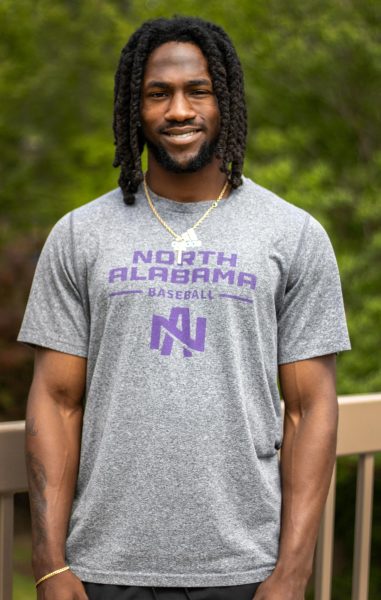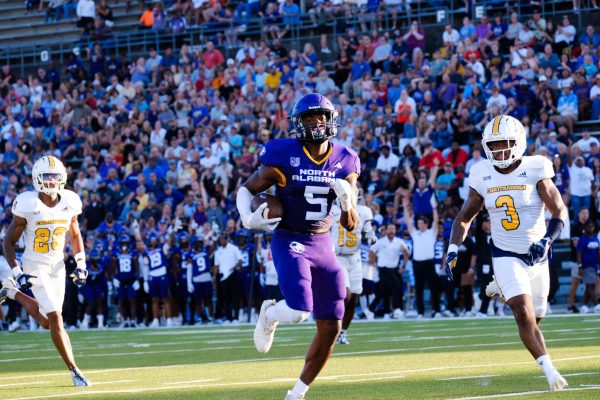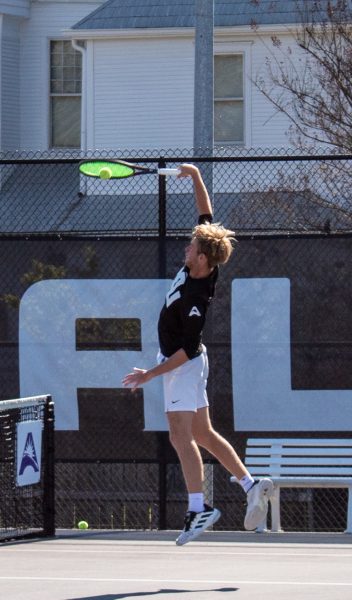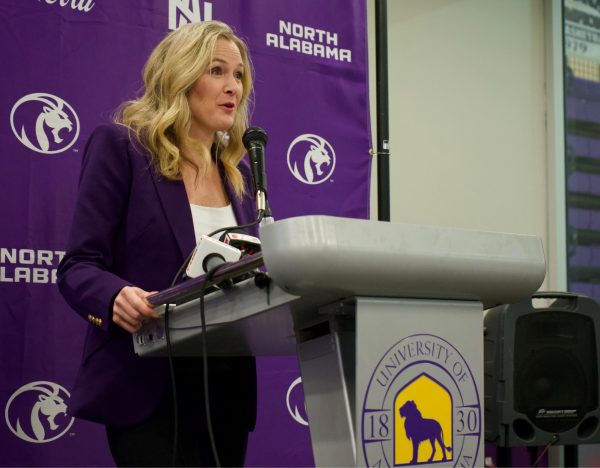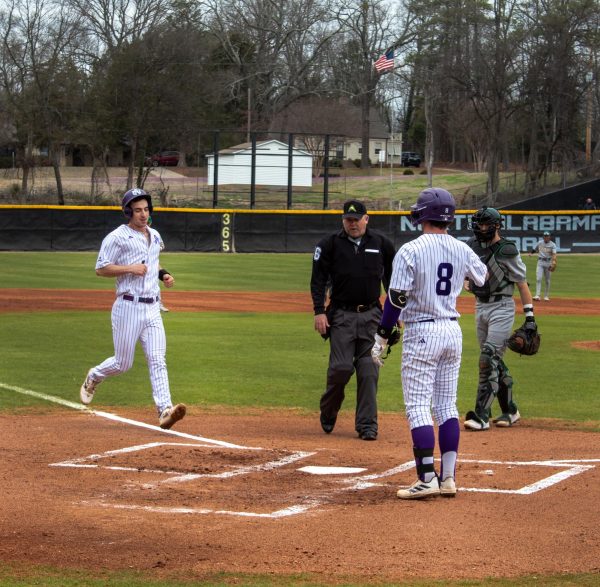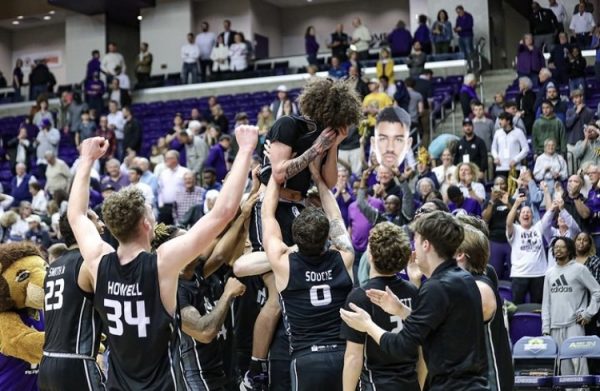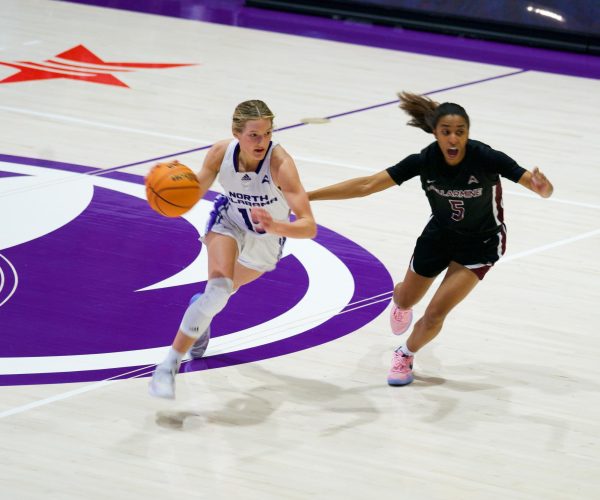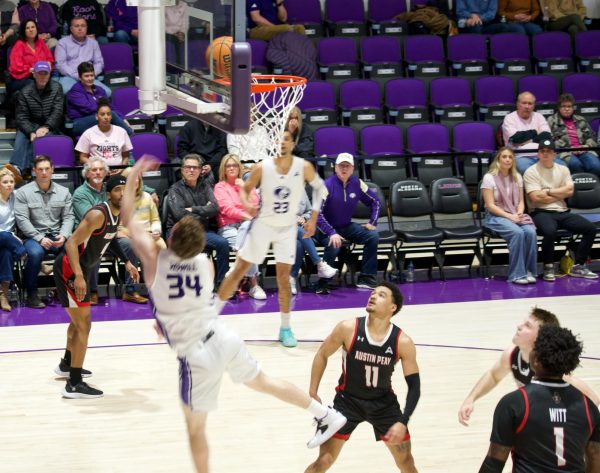Athletes try to find time for school while playing
December 1, 2011
Students are responsible for maintaining a good standing on and off the field. With daily practices and training, many student athletes may find it a little difficult to manage their time for academic reasons.
The athletic department has academic guidelines for its athletes. The department also sends out grade checks to every athlete’s instructor to evaluate the students’ grades and provide feedback on how they are doing in the classroom.
According to the NCAA, students must have a GPA of at least 2.0 to remain in good standing. They also need to have a minimum of 12 hours of classes. Should athletes fail a class or be under the six-hour rule, they may have a hard time being certified to compete the following semester.
“The average GPA of athletes in UNA is a 2.8,” said Athletic Director Mark Linder. “Our current goal is to push up to a 3.0.”
The athletic department is very considerable of its athletes in terms of academics. Athletes also have academic advisers in the department who will guide them for any academic support. An athlete can miss practice for any reason regarding academics.
“There can be a number of reasons why an athlete may not do so well in class,” Linder said. “It can range from time commitments to preparations before coming out of high school.”
According to Linder, students may also have trouble managing academically, depending on the type of sport they play.
A student playing football will have a bit more time to study than a student playing golf, who has variety of long tournaments throughout the year.
Sophomore Jennifer Osmond is doing well in her classes but understands the difficulties of what athletes may go through on the field and in the classroom.
“I came here to play soccer but to also acquire a degree and get things done,” Osmond said.
Attendance is always an issue in college. But coaches do the best they can to enforce that their players go to class.
Student athletes are allowed to miss class only if they have an excuse concerning an away game; however, the instructors may want them to turn in an assignment beforehand since the athlete will not be present to turn it on the due date.
“It adds a little more pressure,” Osmond said. “Some assignments may need a little more time to study and research over, but considering I have a short period of time to turn it in, I may have to rush a bit.”
The forward soccer player also knows that when an athlete is given leisure time, he or she will need to be extremely productive with that free time.
“Our coach may give us a day off on Monday after a Sunday game,” Osmond said. “I would utilize most of the free time that day to clean my house and study for a few hours.”
According to Osmond, the most important initiative a student needs is to be organized.
“Being organized may be a hard thing to do, but once you are, life gets easier,” Osmond said.
Osmond is doing great in class and rarely misses a day unless she has a valid reason.
“I think freshmen students-especially the athletes-may have a hard time getting used to managing because they generally do not know what to expect,” Osmond said. “Whereas a higher classman is more seasoned at managing their time.”
Just like any other students, athletes also have social needs.
“Getting time to meet new people is one of the hardest things to do as an athlete,” Osmond said. “And it’s hard to participate in non-athletic events and other student organizations when we are so connected to the game.”
Osmond still believes that students and athletes have their good days and bad days; however, she also agrees that athletes have to maintain a good balance between grades and games.
“If an athlete does badly on an assignment, they need to push themselves to do their best on the field that same day even if they feel down about that grade,” Osmond said.
“It is important to find a good balance between the two so that the next day they will succeed in class as well as on the field.”



